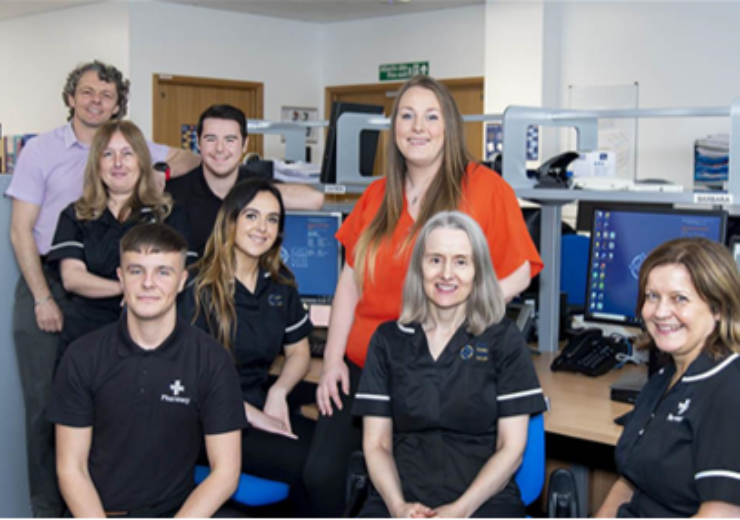Human+ helps a range of organisations to integrate robotic process automation in their services, freeing up time for staff to complete less repetitive tasks

The Medicines Homecare team in Wales has worked with Human+ to increase the amount of time its pharmacists can spend at patient bedsides
All outpatient prescriptions for chronic conditions like cancer and rheumatology need to be checked by hospital pharmacists – a job that’s vital but also time-consuming. In an attempt to speed up this process, an NHS specialist pharmacy department has worked with Human+ to integrate robotic process automation (RPA) into its services.
The Medicines Homecare team, based at Morriston Hospital in Wales, will use RPA software to check and validate prescriptions automatically – and in a third of the time.
The team said this can allow pharmacists to spend more time in wards attending to patients.
These findings came from a proof of concept trial, conducted with help from Human+ – a company that offers support to organisations using RPA into its working practices.
Reuben Morgan, team manager at Medicines Homecare, said: “These medicines are for chronic, severe, life-debilitating diseases.
“Without the prescriptions being validated by pharmacists, there isn’t an alternative method of supply.
“But our pharmacists’ time is best placed at the bedside, making clinical interventions in a clinical setting – where they can make the most of their experience.
“The RPA hasn’t got any other duties. Its bleeper isn’t going off, its phone isn’t going off.
“It’s not being distracted at all. It can just get on with the work and process prescriptions in accordance with the process definition document.
“This is a more prudent approach, which frees up our pharmacists to spend more time at the patient’s bedside, doing that clinical intervention they are trained for.”
What is robotic process automation – and how does Human+ support organisations using it?
RPA refers to any application of technology that uses artificial intelligence or software robots – known as bots – to complete workplace tasks automatically.
These tasks can range from filling out or checking forms, to generating an automated response via email, to deploying bots online.
This means people in the workplace no longer need to complete these rules-based tasks – which are often boring, repetitive and time-consuming.

Human+ CEO David Biden said: “We’re really pleased that the initial project with NHS Wales has delivered such impressive results.
“The pharmacists we’ve engaged with are excited – they’re not seeing automation as something that will do them out of a job, but rather a tool that will empower them to achieve more in their day-to-day role.
“Human interaction is such an important element of care. By giving some of the high importance, low variance work to automated software, we can free up humans to be on the front line in patient facing roles.”
Human+ said it can educate staff and help secure funding for organisations looking to adopt RPA, as well as identifying which processes it would be best used for and the best technology for the job.
The company also provides an accelerated implementation plan to return on these organisations’ investments quickly and make employees more engaged with RPA solutions.
Another key part of the Human+ service is ongoing support – meaning it continues to offer technical support and knowledge to allow organisations after its has adopted RPA.
